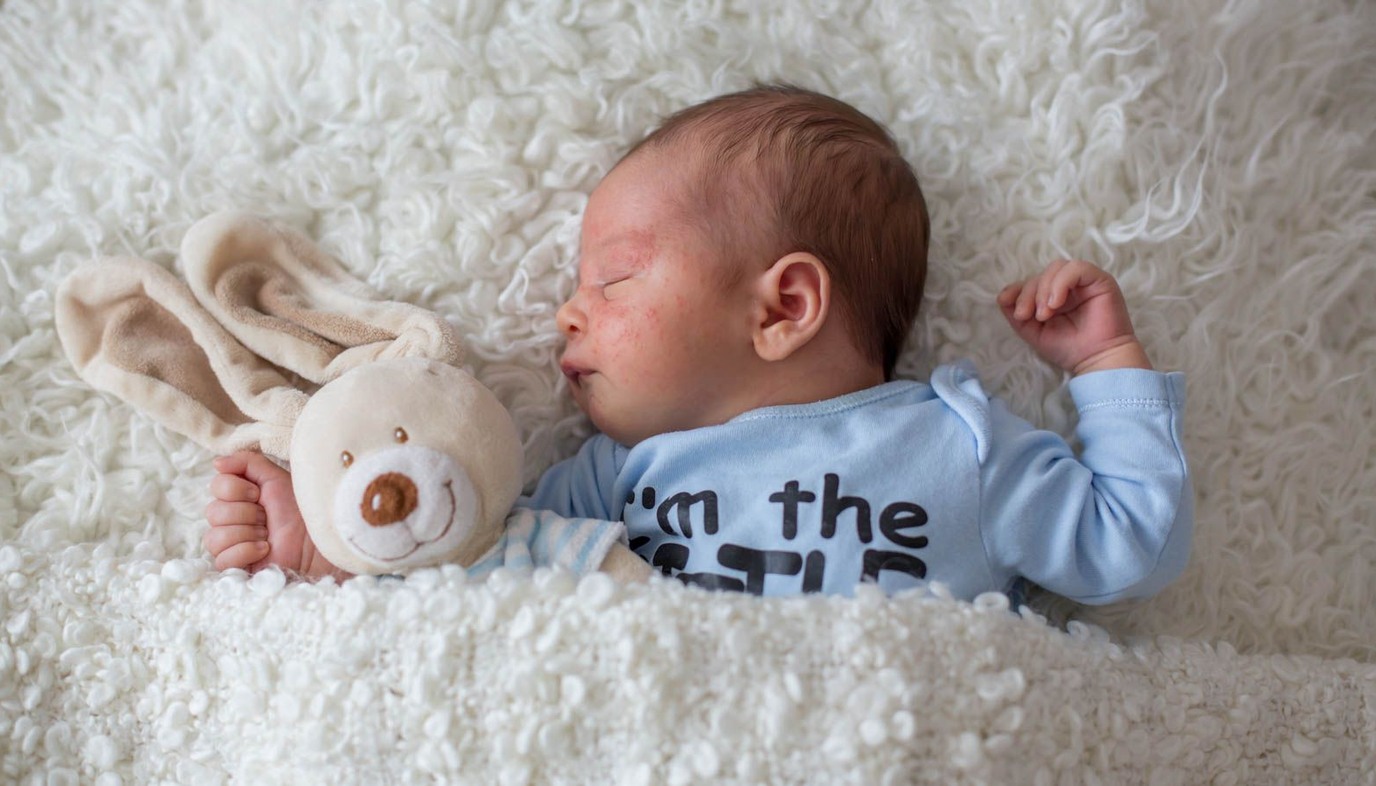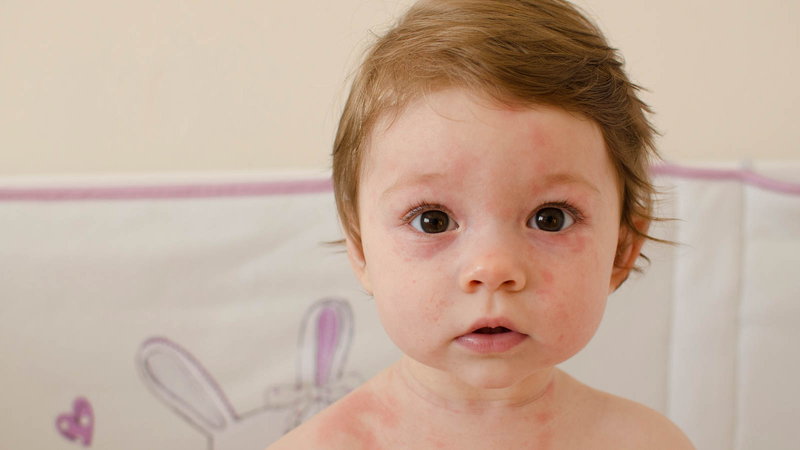
Eczema is a red and blistery rash that affects up to 15 percent of all babies. It usually shows up within the first few months of the baby's life. The cause is unknown, but baby eczema is generally not a serious condition, and most children outgrow it before they reach school age.
Causes of Infant Eczema
Doctors still haven't figured out the exact cause of eczema. Genetics is likely a factor. If one parent has the condition, a baby is much more likely to develop eczema. Researchers believe it is an autoimmune reaction, and it can be triggered by foods and other factors (see below).
Eczema Symptoms
The eczema rash can appear anywhere on a baby's body. The most common location is on the face, especially the cheeks. It can also develop in the creases on the arms and legs near the joints. The rash is red and crusty, and sometimes appears to have blisters. The skin becomes very tender and itchy at the rash site.
Cradle cap is another rash condition that is mistaken for eczema. Cradle cap shows up on the scalp and the upper regions of the face and head, but it clears up by the baby's eighth month of life.
Eczema Triggers
Doctors have identified the following triggers that can lead to an outbreak of eczema:
- Low Humidity: This can lead to dry skin, which then becomes itchy and can develop into eczema.
- Allergy Irritants: This can range from certain soaps, lotions and perfumes to wool blankets or clothing.
- Stress: Children that already have eczema can see their symptoms worsen when they're exposed to stressful situations.
- Heat and Moisture: Keeping the baby too warm can lead to eczema, especially in situations where the baby sweats.
- Food Triggers: There's still some debate about whether certain foods can trigger eczema. Many doctors do believe that eggs, citrus fruits, cow's milk, peanuts and other "allergy" foods can lead to an eczema outbreak.
Treatment and Prevention
One of the most important ways to help treat baby eczema is to prevent your child from scratching at the rash. Scratching only worsens the condition and can lead to an infection. Keep your baby's nails trimmed and put mittens on her to help keep her from itching the rash. On newborns, you can actually put longer socks over their hands and tuck them into a shirt (this makes it more difficult for them to remove the mittens).
Breastfeeding has been shown to lower the risk of eczema in babies, especially if they're in an at-risk group (for example, if one parent has eczema). There is still some debate over whether breastfeeding helps with babies that have already developed eczema.
How you bathe your baby is another important factor. Baths should be in lukewarm or warm water, and should be no more than 10 minutes in length. Oatmeal products in the bath water can relieve itching. Avoid hot water, because it can take essential oils out of the baby's skin. Use soaps that are allergen-free, with no dyes or perfumes in them. Pat your baby dry after a bath, rather than rubbing the skin with a towel.
For more serious cases of eczema, you may have to resort to a medical treatment. Topical steroid creams can be used to reduce inflammation (ask your doctor first). Antihistamines that are safe for infant use can also be given under a doctor's supervision.
When to See the Doctor
Normal cases of eczema usually don't require a visit to the doctor. You can always take the baby in for a quick visit if you're unsure about whether the condition is actually eczema, just to be on the safe side. But if you're confident that it's eczema and it's not serious, you can start the treatments mentioned above at home.
However, sometimes the condition can worsen, and you'll definitely want to pay your pediatrician a visit. If the rash develops a crust over the top of it or if it has blisters that start to leak, this is a sign of infection. Your baby may need a course of antibiotics in this case, which your doctor can prescribe.
Another warning sign to watch for is a lack of response to hydrocortisone creams. If you're treating the baby's condition and it doesn't improve after a week, it's time to visit the doctor. He can recommend a prescription-strength version of topical steroids that may work more effectively.


